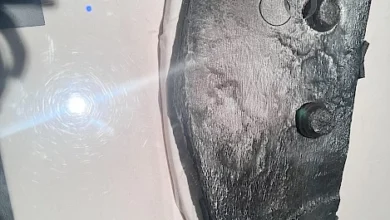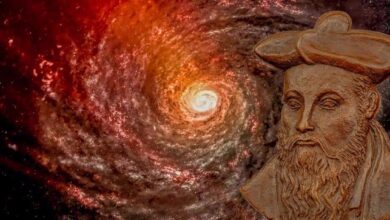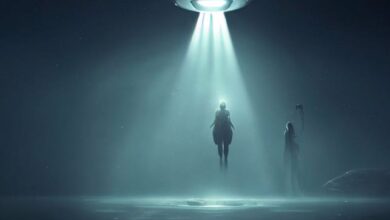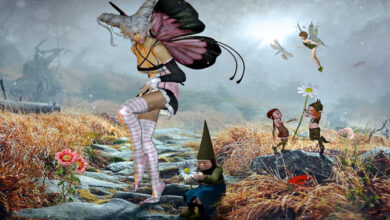Do You Believe in the Paranormal?

Do you believe in ghosts? Poltergeists? The preternatural? The supernatural? Powers beyond the natural? The demi-monde? Life after death? Aliens? Big cats? Alien big cats? BigFoot? Mothman? Slenderman? Qwlman? Mantisman? Black eyed children? Indigo children?
If you are of a more sceptical (not necessarily more inquiring) mind you may reply in the negative to all the beings and phenomena listed above. You might just dismiss all such things as the mere fabrication of individuals who have yet to put aside childish things and grow up. Alternatively, they are merely the overactive imaginings of a feverish mind, and if you’re feeling rather unkind; a deluded one as well.
As Ebenezer Scrooge replied to his spectral former partner, Jacob Marley, when Jacob asked ‘Why do you doubt your senses?’, ‘A slight disorder of the stomach makes them cheat. You may be an undigested bit of beef, a blot of mustard, a crumb of cheese, a fragment of an underdone potato. There’s more gravy than grave about you, whatever you are!’ ‘Bah humbug’ is your mantra when it comes to such unexplained phenomena. Of course, Scrooge had been visited by the haggard and benighted countenance of his long deceased partner for decades and in particular on that fateful Christmas Eve, even before he had ingested a morsel of ‘underdone potato’. He had just chosen to push aside Jacobs’ visitations and explain them rationally.

A lack of belief in forces just beyond the limit of human comprehension does not necessarily mean that events beyond rational explanation have not occurred to you either. You may have ignored them, rationally explained, or dismissed them in order to fit your own intellectual and spiritual paradigm, as is your right to do so.
Now, personally, unlike Dana Scully, I want to believe. I have had an interest in the paranormal since my mid-teens, so there may be an internal bias already present in my own thinking. Although, no person is without their own biases clouding their judgment and this is as true for the professed believer, as it is for the ardent skeptic. We can only view events through the prism of our own lived experiences. What else can we do after all?
If you are of a more skeptical persuasion, try talking to your family, friends and colleagues about their own experiences with events that they just couldn’t explain in any rational terms. Last year, in a pre-Christmas lull at work, my colleague said that areas of his house are bitterly cold, even during the summer. Another told me that she had a deep sense of deja vu onboard a fishing vessel at a the Scottish Maritime Museum. A senior member of staff told me about her young daughter informing her that an old man was living in their new house after they had just moved in to it. It later transpired that the previous occupant had passed away in the same house only a few months before. The CEO of the last company I worked for once told me that when he was younger, he watched a man wearing period dress approach him along a country road. Thinking this was odd, after he passed, he turned around, hoping to catch a glimpse of him again. Apparently, the man had disappeared in the short interim between first viewing him and glancing backwards. I would vouch for all these people. None are prone to flights of fancy or to random notions of the ridiculous. They are all rational human beings. I believe and respect what they have witnessed and experienced. They couldn’t explain what had happened to them and neither could I.
When I look at my own life, I have a similar set of tales to tell. I have smelt engine oil on two random unrelated occasions. My deceased father was an amateur mechanic and could often be found tinkering in the garage. I was vigorously shaken awaken from a post-school nap when I was thirteen years old and lying on my side in bed. As you can imagine I was rather frightened to have my reverie disturbed in such a manner. I have seen, what I could only describe as ‘shadow people’ on two occasions, ephemeral and fleeting shapes on the periphery of my vision. I have saw an apparition in the mirror, if only for a fraction of a second, at a bed and breakfast in Bishop Aukland, near Durham. I have felt the very strong presence of a friend who has passed away. I believe I have witnessed the ghost of a beloved family pet, scurrying about in the kitchen. I have felt a deep sense of unease at Carlisle Castle in a dungeon where they kept prisoners from the Jacobite rebellion in the 1740s. So uneasy, that me and my companion felt the urge to flee the dungeon immediately.
Frankly, I’m just a bit of pleb. Don’t take my word for it. There are far more illustrious and learned men than me who have had direct experience of the supernatural. Churchill, famously saw the ghost of Abraham Lincoln at the White House. Possibly after a late night ‘fireside chat’ with President Roosevelt. President Carter purportedly witnessed a UFO in 1969. I would love to ask Queen Elizabeth the II if she has ever been witness to anything strange at one of her many royal residences. After all, her grandfather, the future George V, supposedly witnessed the Flying Dutchman in 1881, while traveling on HMS Bacchante, so who knows.
If some bold researcher was ever able to collate and catalog the collective and generational evidence that humanity has had of the paranormal / supernatural / unexplained / down-right odd, the collection would be multiple volumes in length and would never truly be completed to satisfaction.
Skeptic or not, the sheer weight of these collective experiences cannot easily be dismissed as mere hokum when they occur to everyone. Charles Fort himself, the American researcher of paranormal phenomena was an early proponent of the use of anecdotal evidence to support claims of the unexplained. Indeed, if something is just beyond our senses then it could just as well be outside the range of our devices as well.
Phenomena surely account for something, even if they can’t be scientifically proven beyond any shadow of a doubt (very few scientific theories ever are are as well). Events are occurring to us. We can’t all be wrong. Even if a large percentage could be dismissed as little known and explainable phenomena, pranks, pareidolia or internal delusion, then the result would still be similar to the situation in the UFO community, where 90% of eye witness testimony can be dismissed as identified flying objects, weather patterns or atmospheric mirages, but a sizable minority of sightings cannot be explained and are thus truly unidentified.

We can’t constantly live in the materialistic, capitalist world, that we have constructed, at least in the West. To an economist, you are just the ‘homo economicus’, a rational being with a narrowly defined self-interest that involves money and conspicuous consumption. To a chemist, you are just a collection of animated organic compounds. To a behaviorist, all your emotions and feelings are just a reaction to a number of external stimuli. You are a mere animal.
However, such theories don’t satiate the yearning for the unknown and the strange. The ephemeral mystery intrigues us and it should, because we’re human beings with emotions, needs and desires that can’t always be articulated by a shopping trip or the belief that we are a more advanced version of a protozoa.
We want to believe in these phenomena. They make our lives far richer, more interesting and add a degree of mystery, and more importantly, they provide us with mystery’s other half: danger. Something that is now mercifully deficient in our lives, but that we still require in small doses on occasion.
Since the Victorians, we have firmly banished the darkness and unknown from our lives (my theory on why the Victorians wrote some of the greatest Gothic fiction is that they were one of the last epochs to live with the dark). We have, also, almost entirely rid ourselves of the real demons that only nature could provide to humans before the modern era.
But we can only banish our need to live in the rational world so far. We can still see the creatures and phenomena from our not so distant past, still lurking at the edge of our imagination, unblinking, where they often have the ability to unnerve us, no matter their causation. The American poet, Henry Wadsworth Longfellow, summed it up best:
All houses wherein men have lived and died
Are haunted houses. Through the open doors
The harmless phantoms on their errands glide,
With feet that make no sound upon the floors.
We meet them at the door-way, on the stair,
Along the passages they come and go,
Impalpable impressions on the air,
A sense of something moving to and fro.
So, question, argue, but don’t always dismiss what you see, smell and feel. Something is happening, whether you choose to believe or not.
*This post was written by David Bone





